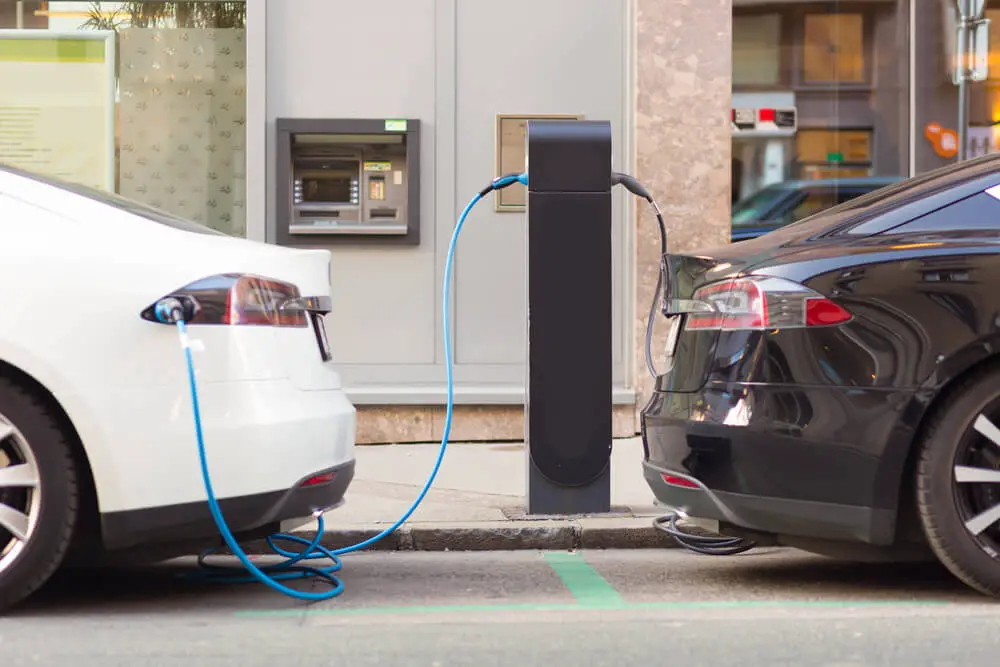The quest for sustainability and a greener environment keeps driving innovations to new levels.
One of the not-so-recent but rapidly improving innovations is that of the electric car.
Gasoline-fueled cars are one of the primary sources of emission in the environment, and the sheer number of these vehicles on the road doesn’t help matters.
However, with a wave of electric cars taking over, what exactly is their impact on the environment?
5 Environmental Impacts of Electric Cars
Here are 5 of the most notable environmental impacts of electric cars:
Reduction in Noise Pollution
Pollution is a headline topic in the environment, but the more common variant is pollution by greenhouse gases.
However, noise pollution is also a huge problem, particularly in megacities or urban regions with high populations and many cars.
Cars running on gasoline continually combust and are known for their loud engine noises when in motion.
On the other hand, electric cars are super quiet, so quiet that it is almost impossible to hear one coming.
But of course, to alert road users, EVs emit a particular sound, especially if they’re moving at a slow speed.
On full battery power, electric cars run very quietly such that there has been talking of at least some engine noise.
This quietness is excellent for the environment and us, of course.
The more electric cars we have on the roads, the less noise we have to deal with daily.
Since cars are forever plying the roads, there is the hope of finally being able to have relatively quiet streets, and in turn, a more peaceful environment.
Reduces Environmental Emissions
This is perhaps the ranking benefit of electric cars.
Full electric cars do not produce the slightest whiff of exhaust, and as such, you would not see them featuring a tailpipe.
They do not combust gasoline or diesel-like traditional engines.
Therefore, their energy generation isn’t done at the expense of producing harmful waste products, namely carbon emissions.
There is no CO produced nor are other harmful particles released into the atmosphere.
Furthermore, the batteries in EV’s are 100% emission-free.
The most common battery variant is the lithium-ion battery, and it’s possible to deplete and recharge the battery repeatedly without a release of any harmful gases into the atmosphere.
Regarding the source of electricity used for charging and the mode of generation, countries that are coal-reliant such as China have reported a 20% reduction in the rate of greenhouse gas emissions resulting from using electric cars. (Source)
Countries that use power generation sources like oil, natural gas, or coal still do not record an increase in emissions.
Instead, a less significant carbon footprint is being left by electric cars.
Furthermore, cleaner energy sources guarantee that EVs would push emission rates even lower.
Encourages Use of Eco-friendly Materials
Electric vehicles are intended to be lightweight, a whole lot lighter than gasoline-powered cars.
Lighter electric cars leave a pretty insignificant carbon footprint and have an impressive range too.
However, using regular materials makes this end goal practically impossible because they are heavy.
But on the flip side, using organic and recycled materials is feasible. For one, they are strong, durable, eco-friendly, but also lightweight.
Typically, recycled materials are used by car manufactures for small components.
On the other hand, EV manufacturers are looking to use as many recycled and eco-friendly materials as they can, from components to the vehicle structure itself.
This would make for lighter and highly efficient cars.
Constantly using new metal and plastics invariably increase the number of non-recyclables in the environment and encourage pollution.
However, eco-friendly and recycled materials, not only reduce car weight but also helps the environment.
Clean Production Process
The only aspect of an EV that might lead to some air pollution is the process of manufacturing the EV battery.
And this is only a significant concern if it is not done conservatively.
Most of the emissions associated with the EV come up during the production process.
Because EVs are a reasonably new innovation, there is no consistent industry standard capping the amount and energy sources for manufacturing batteries.
Therefore, this may lead to indiscriminate energy use and, consequently, a significant carbon footprint.
However, this is rapidly getting better.
The carbon footprint produced from EV batteries is 3 times less than some two years ago, and the process keeps getting cleaner.
For instance, certain EV manufacturers already mandate battery manufacturers to ensure that renewable sources like wind or solar are used for the production process.
These sources are an excellent avenue for tapping energy while eliminating harmful emissions in the process.
Encourages the Use of Renewable Energy
Electric vehicles can directly get their power naturally from renewable energy sources like wind, solar, and water.
It is super easy to get solar panels installed in your home and conveniently charge your car in your garage.
This helps to boost the renewable energy trend on an individual level. Although gasoline is obtained from oil, a natural energy source too, it is neither renewable nor clean.
Using renewable energy has a lot of perks, such as lower costs (running a gas-powered vehicle costs 3 times the running of an EV), and of course, gas costs more than electricity.
EVs also make use of the regenerative braking feature to increase the amount of energy available to the car.
Drivers of EVs prefer to get their electricity from clean sources, and a solar PV system is one way.
You could charge your EV with this during the day and drastically reduce your greenhouse gas emission.
An alternative is to ask that your electricity retailer supplies GreenPower.
You can then charge directly from the electricity grid, using renewable energy.
Conclusion
The future of motor vehicles is electric, primarily because of the profound environmental benefits and other personal preferences.
Thanks to guaranteed continuous innovation, we can be sure that EVs will keep reducing greenhouse gas emissions and meet personal preferences as well!





